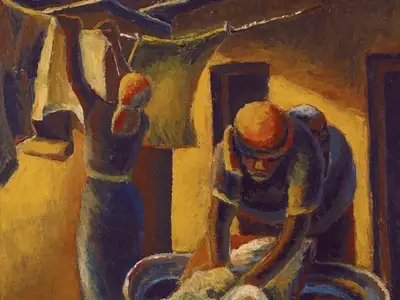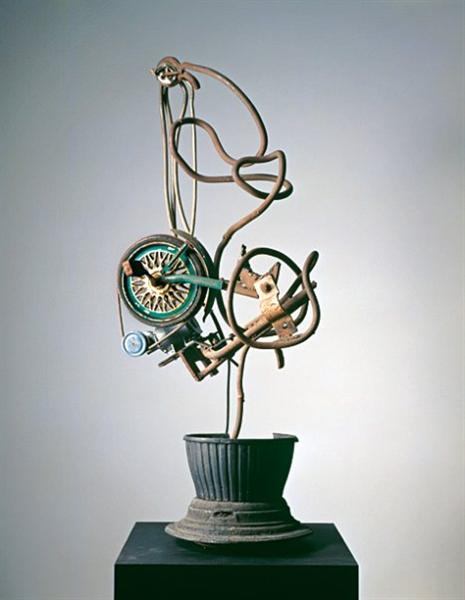Title of Artwork: “Washerwomen”

Artwork by Gerard Sekoto
Year Created 1939
Summary of Washerwomen
As a painter, Sekoto was fascinated by individuals, and he often sketched them to use as a reference for his works, which were subsequently created from memory. While he was adept at simplifying and composing works with a strong structural quality, he was also able to portray the mood with his unique use of a harmonic blend of bold, nearly primary colours.
All About Washerwomen
Essentially, Sekoto’s subject matter was the environment in which he was situated. Sekoto’s early work, on the other hand, was notable for its wide range of subject matter. The artist explored a wide range of themes, including female gossip, the workday, African beer halls, and the daily commute of office workers.
To the more jaded eyes, the mundane and unworthy of an artist’s attention seemed to him to be full of colour, anecdote, and fascination. Composing figures with remarkable dignity, Sekoto shows his deep concern for the human predicament in his work.
Sekoto’s efforts during the Sophiatown era allowed the Johannesburg suburbs to see and experience the lives of people in different parts of the world. While Sekoto’s Sophiatown years were an eye-opening experience for many people, for others, the street scenes painted in watercolour, poster paint and oil during that time period were eye-opening.
Those who bought his work were overwhelmingly people who believed in racial equality, possessed liberal political beliefs, and were more familiar with life on the other side of the colour line than most white people are.
Information Citations
En.wikipedia.org, https://en.wikipedia.org/.























